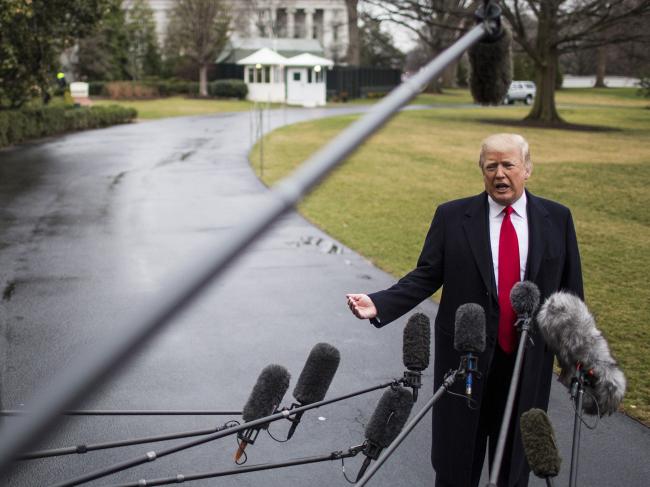(Bloomberg) -- Existing tariffs on billions of dollars of Chinese goods coming into the U.S. are likely to stay in place until after the American presidential election, and any move to reduce them will hinge on Beijing’s compliance with the terms of a phase-one trade accord, people familiar with the matter said.
The two sides have an understanding that no sooner than 10 months after the signing of the agreement at the White House Wednesday, the U.S. will review progress and potentially consider additional cuts on tariffs affecting $360 billion of imports from China, the people said, declining to be identified because the matter is private.
The period of review, which is not expected to be specified in the deal’s text, is intended to give the Trump administration time to verify the Asian nation’s adherence to the terms of the pact. It won’t affect a halving of the 15% tariff on about $120 billion in Chinese goods announced in December that is still due to go ahead.
Officials have said before they will release the text of the 86-page agreement in conjunction with the signing and denied that there’s a plan to cut duties further.
“The only non-public component of the agreement is a confidential annex with detailed purchase amounts, which has been previously described,” U.S. Trade Representative Robert Lighthizer and Treasury Secretary Steven Mnuchin said in a joint emailed response to questions. “There are no other oral or written agreements between the U.S. and China on these matters, and there is no agreement for future reduction in tariffs.”
The news wiped out gains in American stocks, where major benchmarks had hit fresh records. Treasury yields dipped and the dollar slipped versus the yen.
Remaining Duties
The U.S. agreed not to go ahead with a new tranche of tariffs in December and to reduce the rate on about $120 billion of Chinese products as part of the deal. But the fate of the remaining duties has been unclear, with economists saying they are likely to continue to be a drag on both economies.
Intrigue surrounding the accord is high because the White House has gone to unusual lengths to prevent public scrutiny of the terms in advance of its enactment. Congressional staff have been required to read the agreement in secure facilities at the Capitol and haven’t been provided copies, and for more than a month U.S. officials have said they were still working on translating the terms to and from Chinese.
The timetable would allow President Donald Trump to keep existing levies in place until after voters decide whether he should get a second term, pushing off an issue that could prove objectionable to his core supporters. Trump has claimed the duties on China as one of his greatest economic achievements, labeling himself “Tariff Man.”
Relief on duties is also a sensitive matter for financial markets, which have gyrated with the multiple mood swings during the course of a two-year dispute that’s raised uncertainty about the outlook for the global economy.
After the first phase takes effect, the U.S. will maintain 25% tariffs on $250 billion of Chinese imports and a 7.5% levy on another $120 billion. China didn’t commit to specific tariff reductions under the agreement, but instead has vowed to exempt certain U.S. products from its duties in order to meet the purchasing targets laid out in the deal.
The Asian nation has also committed to increasing purchases of American farm goods such as soybeans and pork, and making new commitments on intellectual property, forced technology transfer and currency.
The U.S. presidential election is set for Nov. 3.
(Adds highlights of phase-one deal in third paragraph.)
